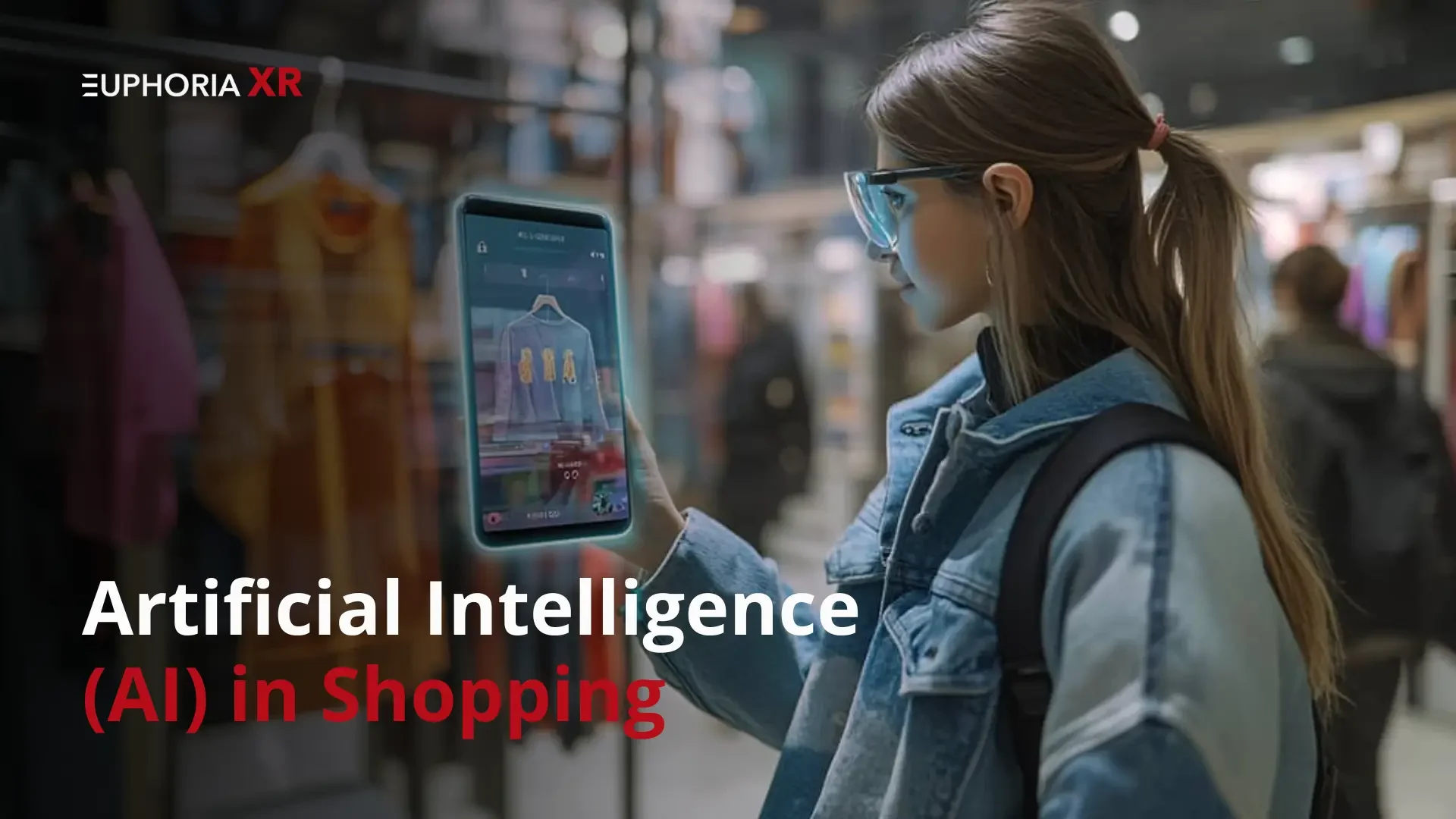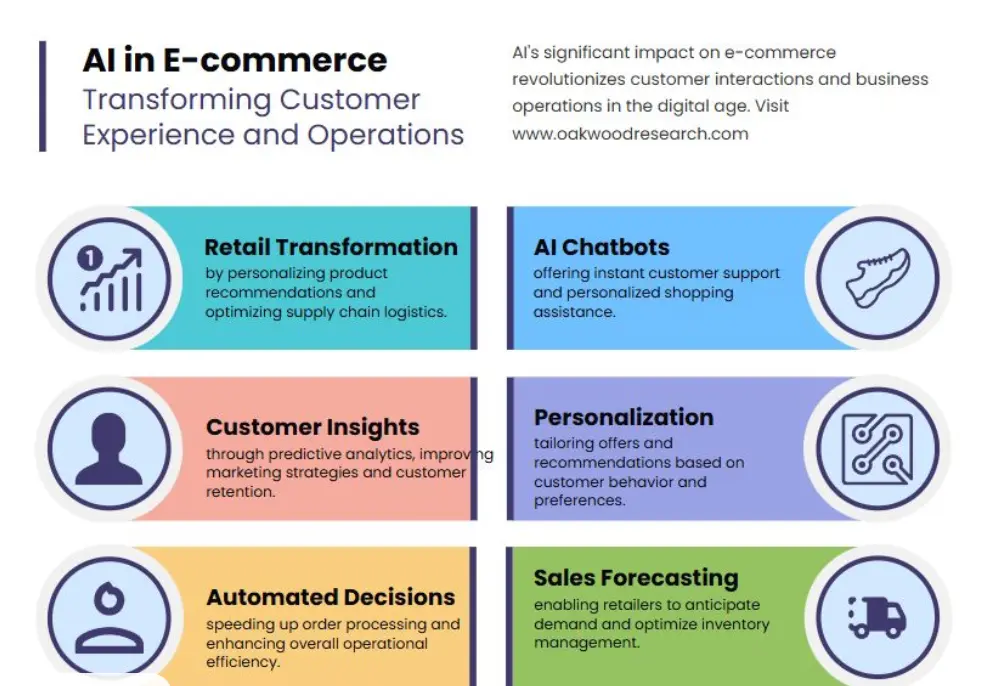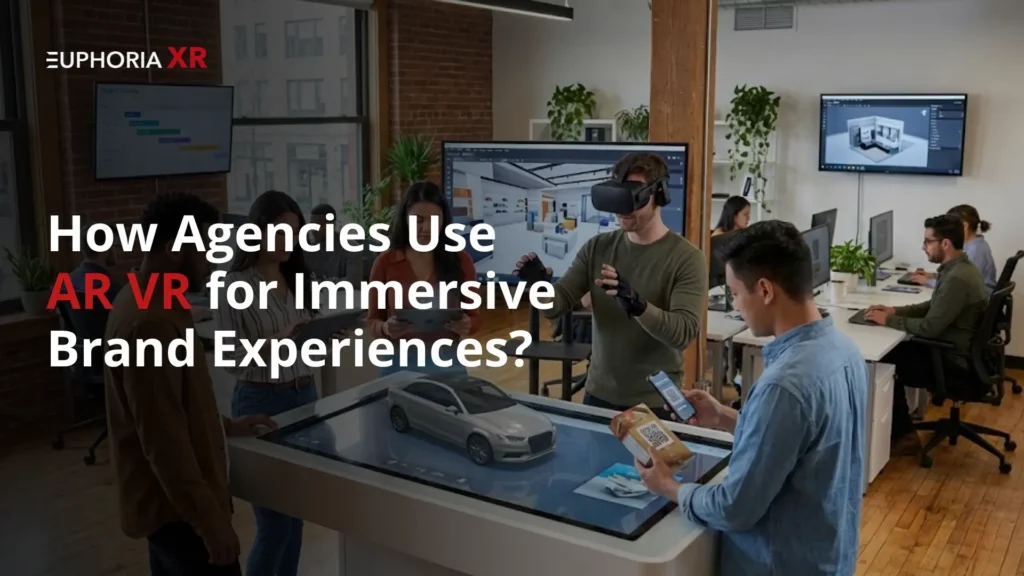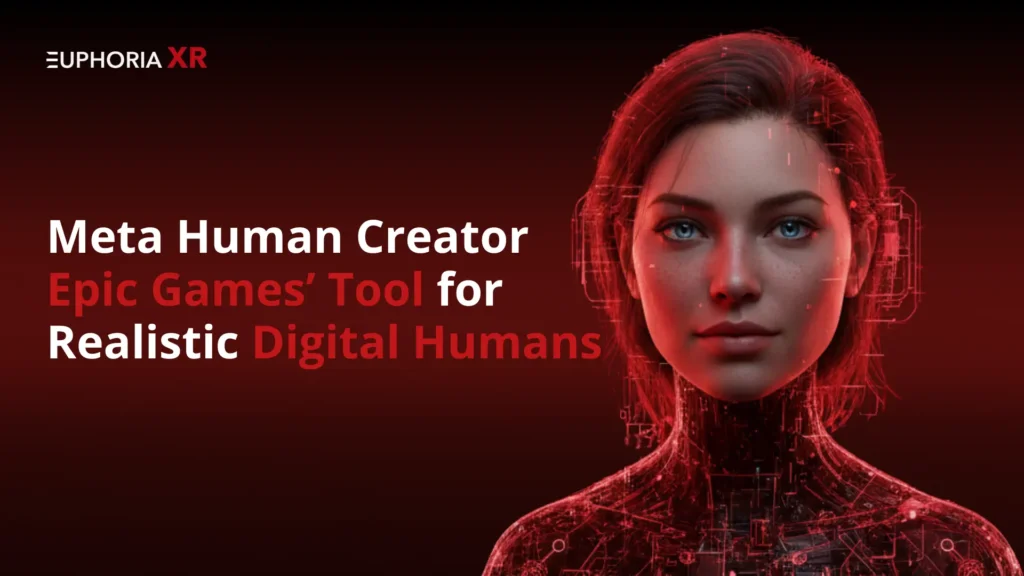Wait, how does Amazon manage to know exactly what I want before I even notice?
It could happen to you: you are thinking of deciding whether you need a new pair of shoes, and voilà! Your social media feed is loaded with the same model you imagined.
It’s not a mystical gift. AI in shopping is silently working behind the scenes.
Today’s shopping is very different from how it was five years ago. We now go from looking at items in a store to having AI help us find things we like based on what we’ve browsed before. For nearly every product you buy online, AI is affecting your purchases through clicks and gestures.
This doesn’t only apply to future technology. A McKinsey analysis for 2024 found that more than three-quarters of e-commerce companies are already making use of AI to improve product recommendations, provide virtual experiences, update stock numbers instantly, and assist with customer service.
The result? An experience that is easier to shop with, more customized, and helps businesses make more money.
How exactly does online learning happen?
So, here’s how we do it—in simple terms.
What is AI in Shopping?
Using computer systems that can “think” and “learn” to improve your shopping experience, simpler, quicker, and more customized, is known as artificial intelligence (AI) in shopping.
It works by filtering millions of products to only show what’s important for you. It notices your activities online (including your clicks, purchases, and interests) and makes personalized suggestions, the same way a store assistant would.
It helps retailers by choosing the right product for you, answering swiftly via chat, and making sure your favorite things never go out of stock, all unnoticed by customers.
The 5 Types of AI Relevant to Shopping
There are several types of AI, and not all are part of shopping (yet), but some have already become very important. Let’s break down each approach for simple understanding.
Reactive Machines
That’s the simplest form AI can take. They are not taught by the mistakes they have made before. Instead, they address what is currently occurring.
In Shopping: Look for simple product filters and recommendation areas that stay the same no matter your past activity. They don’t take much time, are straightforward, and depend on your reflexes.
Limited Memory
This is the type that is most often seen in e-commerce today. It keeps a record of past data to make more reliable choices.
In Shopping: Did you ever check out a website that suggested items to you after reviewing things before? Or maybe you want to put items aside in your shopping cart for when you’re ready? We’re seeing an example of limited memory AI in this case.
Theory of Mind
Machine learning for this purpose is still under development. Its goal is to study human emotions, what humans think, and how they act socially.
In Shopping: An AI could both know your tastes and realize the event for which you are buying a gift (birthday, holiday, or to cheer you up). That’s the ultimate objective for Theory of Mind AI.
Self-Aware AI
What we have is AI with self-awareness; it knows itself. We’re still a long way off, and having mind uploads still sounds a little unreal.
In Shopping: Should an assistant exist for shopping, it might behave exactly like a human and understand how its actions affect what you decide.
Agentic AI
This is where things are happening right now. It is not just responsive; agentic AI plans, decides, and performs tasks for you.
In shopping: Imagine that while you browse, a virtual assistant can advise what to get, refill your household items, update you on when things are on sale, and help process any returns—even if you haven’t asked.
Interested in learning how AI could transform your customer experience? Let us dive into strategy.
Key Use Cases of AI in Shopping
AI is helping on the backend by making processes easier for companies and their customers. AI is playing a major role in the way we shop by using these six methods:
Inventory Management
Did you ever go into a store thinking you’d find a certain product, only to discover it wasn’t there? Artificial intelligence helps to address that. It works by monitoring product levels constantly, forecasting when something will run out, and taking care of ordering more.
The significance: Retailers prevent sales losses, and customers are always satisfied.
It was found by IBM that retailers using AI in their inventory could experience up to 30% fewer out-of-stock items.
Demand Forecasting
Knowing customers’ preferences before they do is the main power retailers wish for.
It uses past figures, patterns during different months, and online discussions to estimate what customers will want next.
Why this is important: Companies can plan, avoid buying too much, and always have the right items for their customers.
Zara uses AI tools to make quick decisions about design and stock levels using instant customer information.
Route Planning & Logistics
A fast delivery isn’t only reliant on quick shipping—it’s also about thinking ahead. AI determines the shortest, cheapest, and most time-saving ways to deliver based on how traffic varies, location, and current timing.
Why this is important: Packages take less time to arrive, shipping costs reduce, and everyone is content.
Amazon’s use of AI in logistics helps the company save billions in delivery expenditures each year.
Price Optimization
Have you ever discovered that the prices you see on a website depend on your browsing habits? That’s AI. AI technology is able to change prices immediately depending on need, rivalry, the time, customer habits, and the hardware they are using.
Why it is important: Customers are offered fair prices and sometimes additional discounts. Sales and profits are increased by retailers.
A Deloitte report found that, thanks to dynamic pricing, some retailers could earn up to 25% more revenue.
Assortment Planning
What makes stores carry unique merchandise rather than the same? AI determines where different products will be sold.
What it achieves: AI reviews buying patterns based on location to select the right mix of products for every store or website.
The good thing about it: Customers purchase what suits them, and shops do not waste space on unwanted items.
Walmart uses AI to change its product offerings in each of its 4,000+ U.S. stores to match what customers want in that location.
Personalization
A relevant shopping experience usually encourages you to come back.
How it does it: AI studies the things you like, the items you’ve bought before, and your actions to make product suggestions, emails, and customize the site.
The reason it’s helpful: You don’t have to scroll forever, and it feels like the brand knows what fits you best.
Salesforce says that over half of customers want personalized offers at all times.
Real-World Applications of AI in Shopping
AI is currently making our shopping experience faster, simpler, and more focused on us. Real-world applications prove how much AI is impacting retail right now.
Merchandising & Product Recommendations
Now, online shops can offer you products they think you will enjoy, based on the items you’ve looked at before. They feel like they’re exactly what I need, and that’s true. Nearly one-third of Amazon’s profits come from its AI recommendations.
Marketing & Customer Segmentation
They do not send the same information to all their customers now. AI allows e-commerce sites to group shoppers depending on their actions, tastes, and how they spend, so every individual sees content that matches them. Segmentation done with AI has helped brands increase their conversion rate by up to 50%.
Supply Chain Optimization
AI plays a role in helping retailers organize products correctly on their shelves and track shipments. Things happen more efficiently and with less delay. AI is used by Walmart to keep track of inventory at thousands of stores.
Product Development & Innovation
Companies can use AI to see trends thanks to its analysis of reviews, customer comments, and social data. Now, products can be brought to market more quickly, thanks to what real people are looking for. The company uses technology and stylist skills to make custom wardrobes for clients.
Customer Service Automation
You can get instant answers to your questions from chatbots at any time. They let you check your order history, get help, and fix issues online, without chatting with a person. Recently, more than 80% of common customer questions have been answered by IBM’s AI.
Fraud Detection & Prevention
AI scans for behavior that could hint at fraud, for example, unusual places for logins or unusual ways purchases are made. It immediately spots issues to ensure everyone’s security. Firms that depend on AI for fraud detection have lowered their losses related to fraud by 60%.
Voice and Visual Search Capabilities
Now, shoppers can say what they want or use a photo to search for items. You could ask for red sneakers at a low price, and AI still knows exactly what you want. Target and Pinterest are among the first to offer visual search for their customers.
Smart Search & Navigation
AI improves how search bars work. You don’t have to type a question perfectly or in much detail, as it will still help you find your answer. It can look beyond mere keywords at the true message someone sends. Thanks to AI, Bloomreach found that search produced up to a 20% increase in online revenue.
Are you searching for an AI development partner you can count on? EuphoriaXR provides top AI solutions to meet the real-world business needs.
Check out our AI Development Services.
Real Brands Using AI in Shopping
Fashion brands, department stores, and retail chains are joining in on AI to improve our shopping experience.
Amazon
Among companies, Amazon has made the biggest use of AI. Algorithms filter items for you, selecting those that match what you’ve looked at, clicked, or purchased before. AI is adopted by delivery companies to control their warehouse supplies and optimize the ways they deliver.
Farfetch
The platform relies on AI to follow the latest fashion trends from all over social media. Using analytics, designers and brands can understand what customers are looking for and make products that will be purchased.
North Face
With the use of AI, virtual assistants on The North Face’s website ask customers about their goals for using that product. ChatGPT acts as a helpful virtual salesperson during your conversation.
Macy’s
Customers using the Macy’s app or site can turn to AI chatbots for help with returns, their package delivery, and other store questions. It is also able to improve promotions with insights from customer behavior.
Walmart
You can find AI at Walmart in things as simple as automated stocking and as advanced as predicting instant bestsellers in different stores. It allows companies to choose the best locations to deliver products faster.
Simply Be
Artificial intelligence was used to update the on-site search for this fashion brand. As a consequence, people who used search were 20% more likely to purchase an item.
Boden
Boden runs different web content (like headlines and pictures) through AI tests, selecting the version it thinks is most effective for each shopper. They’ve seen a huge increase in the number of users participating at the beginning of the marketing process.
AI-Powered Personalization and Customer Experience
Shopping has never felt as personal as it does now, and that’s thanks to AI.
Whenever a product appears that seems perfectly suited to you, it’s because the AI is using your online habits, wishlists, shopping habits, and location.
Another way to see this is by focusing on more than just products.
AI personalizes:
Based on your interests, the site has different homepages.
Any updates or information sent when and about things you care about
Stuff you’ll often buy on your regular shopping trips
This customization, which feels like it’s meant for you, keeps you interested in returning.
Salesforce reports that 66% of shoppers say they are likely to buy when offered a personal experience.
Ready to safeguard your e-commerce business? Find out how AI tools can help with efficiency and sales. Let’s make it happen.
Enhanced Decision Making With Retail Analytics
Retailers use AI to sort through all the data that’s collected in shopping interactions.
Retailers collect data from sources such as website clicks, former purchases, feedback, things sent back, in-store crowds, and even what’s said on social media. Still, this data is of no use unless it is processed. That’s where AI is helpful.
AI tools can:
Try to see what products are popular and the times they are most popular.
Look for products that sell slowly as well as those that come in high demand.
Choose the times when you expect your offers to attract the most attention
Make it clear which content or options one should apply
Now, retailers base their choices on the most updated information from their systems. So, you will make fewer mistakes, your customers will feel happier, and your profits will rise.
According to Deloitte, using AI for analytics led companies to make decisions twice as fast as with traditional processes.
How to Implement AI in Retail Successfully
Integrating AI into your retail operation doesn’t have to happen at once. The top brands build their branding strategy one step at a time.
Let’s look at the initial steps you should take.
Start with clean, organized data
AI can only function if there is good data available. Accurate information about your customers, products, and sales should be your first goal.
Pick one use case with high impact
Pick only one goal at a time, such as providing better product recommendations or handling customer service requests automatically.
Choose tools that integrate easily
SSPs should easily integrate with your e-commerce, POS, or CRM systems.
Train your team
Ensure your team is aware of how to use AI at work every day.
Test, track, and improve
Evaluate your efforts, take in input from people, and always make changes. You help AI learn better by feeding it good information continuously.
Challenges and Ethical Considerations of AI in Shopping
AI has many abilities—still, it isn’t infallible. Anyone who shops online should understand a few key issues about card security.
1. Privacy and Data Use
Most shoppers do not understand the amount of their data that stores use. Brands should always be open about what they do and keep customer information safe.
2. Bias in Recommendations
Not every product or kind of user is treated the same by AI if the data it has isn’t varied. It can cause results to be unfair.
3. Over-Automation
If shopping is too high-tech and little human, it can seem like a disappointment, especially when an error occurs.
4. Lack of Transparency
It isn’t always obvious to the consumer when stores offer dynamic prices or personalized deals. Retailers should always admit to customers how decisions are made.
As ethical AI is receiving more attention, retailers now have to manage data based on new regulations such as the GDPR.
The Future of AI in Shopping
Shopping is changing rapidly, and AI is at the heart of that change.
Let’s look at some trends coming shortly:
A homepage, list of products, and offers are made entirely different for every shopper.
If you’d like to check out items without leaving your home, you can try them on virtually with AI and AR.
These voice assistants place your order, monitor your products on their way to you, and offer suggestions based on what you have.
AI in retail is used to help estimate just how many goods to produce and when they should be made.
Accenture reports that 91% of customers say they are more inclined to purchase from brands that recognize them, remember their history, and tailor their service.
The result: instead of feeling like a standard transaction, shopping in the future will be tailored to you.
Do you have a vision for AI that needs realization ? Hire an AI Developer now to turn your data into smart and scalable solutions.
Final Thoughts!
AI is now simply the way shopping is done.
With AI, getting help, finding what you need, and enjoying your purchases are now all less stressful. Companies can expect to make informed decisions, keep their products and services error-free, and please their customers. For buyers, it helps you discover items faster, get useful tips, and enjoy a straighter path from your first search to checkout.
Those retailers who use AI wisely and ethically will become more noticeable as AI expands.
The future of buying things is going to be quick, easy, and focused on you.
Frequently Asked Questions(FAQs)
How is AI used in e-commerce?
Both product recommendations and customer support are personalized with the help of AI software in online shops, while AI is used to predict demand, prevent fraud, and boost the site’s marketing and search functions.
How does Shopify use AI?
With AI systems, Shopify can advise what to offer, write product information, handle your shelves, and give smart tips, all through features in Shopify such as Shopify Magic and predictive analytics.
What are the risks of AI in e-commerce?
Problems exist with privacy, discrimination in results, excessive use of technology, and hidden prices or decision-making methods.
How does AI personalize the shopping experience?
AI observes what you search, how you shop, and which products you buy to customize recommendations, generate different promotions, create targeted emails, and change the home page for each specific shopper.
How does AI enhance search and navigation in online stores?
Thanks to AI, search engines can find the right results if someone uses the wrong word or a synonym. With navigation, users can still discover the right information, even if they aren’t using specific search words.















